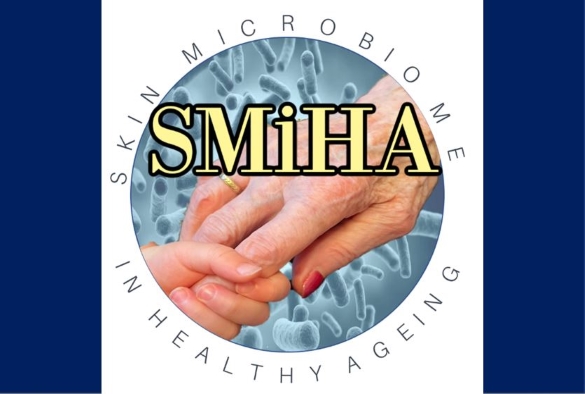The skin microbiome in healthy aging – a new national network to address key challenges.

Skin health is vital to healthy aging and yet, 50% of the UK population suffer a microbiome-associated skin. This represents a significant burden on healthcare budgets with the management of infected wounds alone utilising 5.5% of total NHS expenditure. Despite this, the skin microbiome and interactions with aging remain poorly understood.
The Skin Microbiome in Healthy Ageing (SMiHA) aims to address this. The network, funded by UKRI, BBSRC and MRC, comprises of researchers from academia, industry and healthcare. Dr Mal Horsburgh from the University of Liverpool is the Deputy Director of SMiHA. The network is led by University of Bradford in conjunction with Universities of Manchester, East Anglia and Queen Mary London. One key aim of the network is to support open collaboration and provide resources for skin microbiome research. A programme of events and funding support is planned over the coming 2 years.
Dr Mal Horsburgh had this to say about the network.
“Understanding the link between the skin microbiome and aging is essential to design effective interventions. Following the inaugural meeting in May, the network has an overall focus on ‘changes in the skin microbial community’ with a subtheme of changes during menopause. This is an exciting opportunity to really advance our knowledge in this area”.
The skin is a unique environment and there are many possible approaches to understanding the microbiome. Funding opportunities are currently being explored to support the overall aims of the network.
Twitter: @skinmicroageing
Website: https://www.ukanet.org.uk/skin-microbiome-in-healthy-ageing-s-mi-ha/